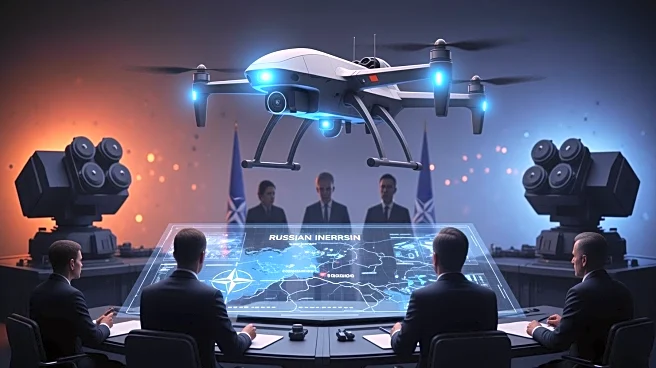What's Happening?
NATO defense ministers convened in Brussels to address concerns over Russian incursions into alliance airspace. The meeting focused on establishing a 'drone wall' to counter potential threats from Russia,
a project being developed in collaboration with the EU. Recent mysterious drone flights have disrupted airports and approached military sites across Europe, prompting NATO to consider integrating low-cost technologies into its anti-drone defenses. Additionally, the ministers discussed the decline in Western military aid to Ukraine, with a study showing a 43% drop in support during July and August. The meeting also highlighted Spain's failure to meet NATO spending targets, drawing criticism from President Trump.
Why It's Important?
The development of a drone defense plan is crucial for NATO as it seeks to bolster its defense capabilities against Russian provocations. The decline in military aid to Ukraine could impact the country's ability to resist Russian aggression, potentially altering the balance of power in the region. Spain's non-compliance with NATO spending targets could strain relations within the alliance, affecting collective security efforts. The situation underscores the need for NATO to adapt its strategies to address emerging threats and maintain unity among member states.
What's Next?
NATO is expected to continue developing its drone defense capabilities, potentially incorporating technologies used by Ukraine. The alliance may also pressure member states like Spain to meet spending commitments, ensuring a unified defense posture. The ongoing conflict in Ukraine will likely remain a focal point for NATO, with efforts to increase military support potentially being revisited. The situation may prompt further diplomatic engagements to address security concerns and strengthen alliances.










